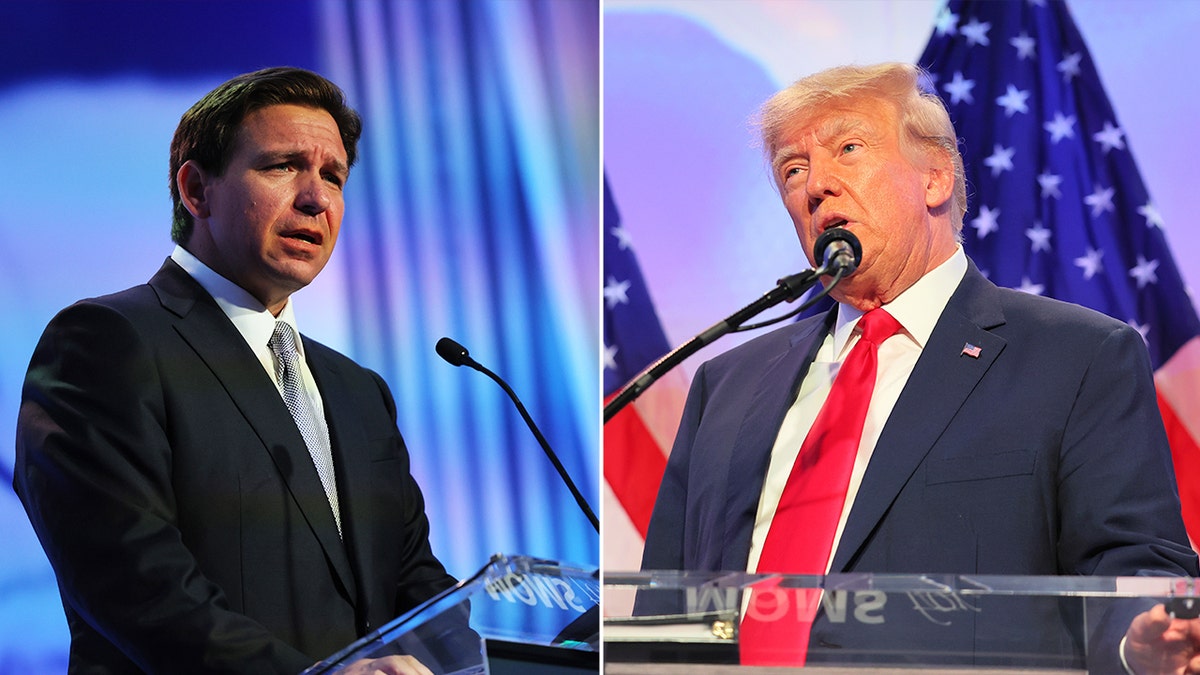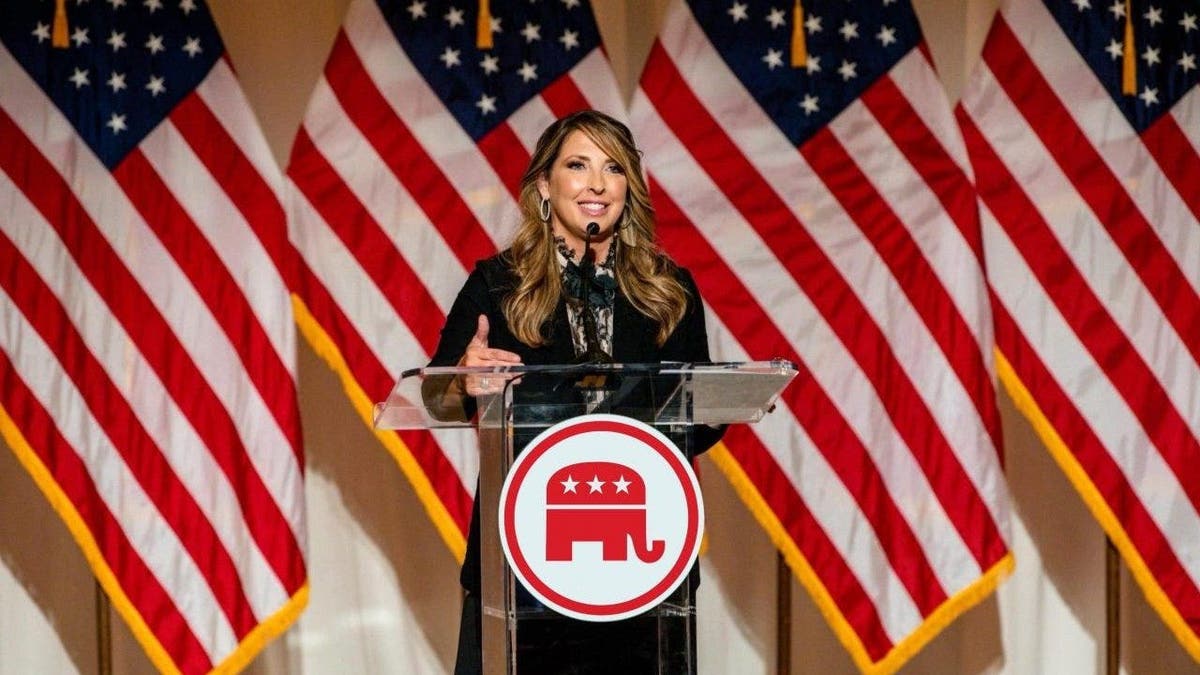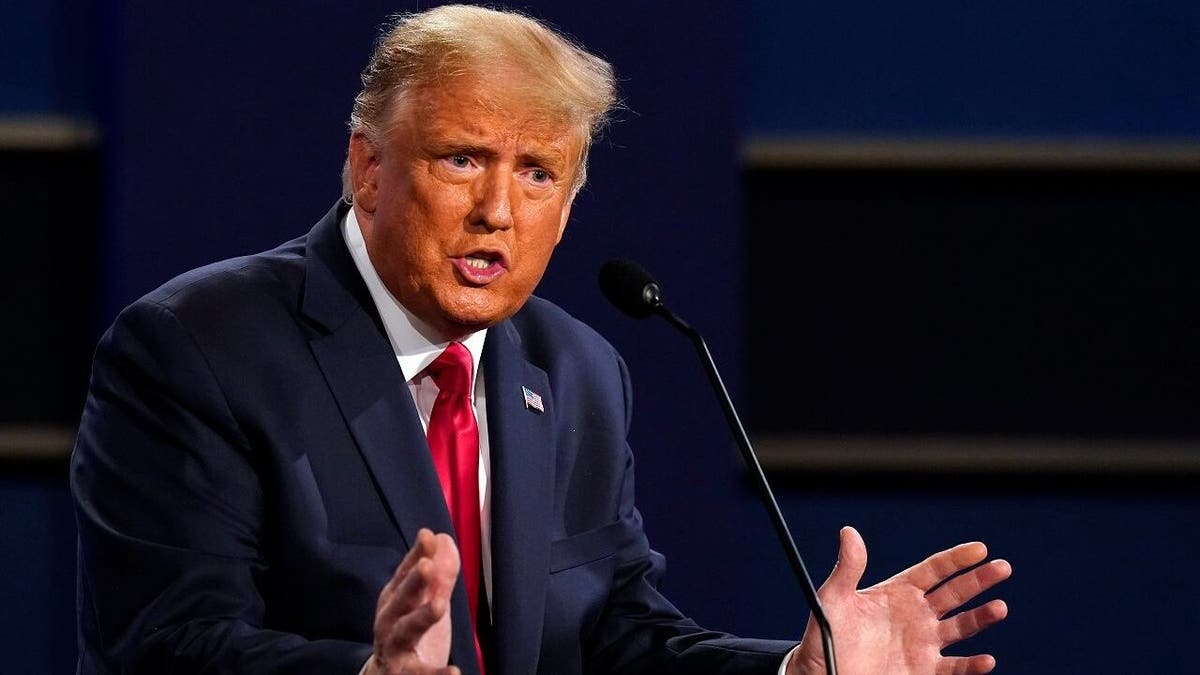In a move that could reshape the 2024 Republican presidential race, the Florida Republican Party has announced a new requirement for candidates hoping to compete in the state's primary: a loyalty pledge. This mandate, filed with state election officials this week, compels candidates to endorse the eventual winner of the Republican primary, irrespective of their personal preferences.
This decision puts pressure on key contenders like former President Donald Trump and Florida Governor Ron DeSantis, both of whom have previously sidestepped committing to such a pledge. While the Republican National Committee has a similar requirement for participation in the August debate, both Trump and DeSantis have expressed reservations about pledging their support unconditionally.

Florida Governor Ron DeSantis and former President Donald Trump. (Getty Images)
Trump has stated his endorsement would depend on the nominee, while DeSantis has offered noncommittal responses when questioned about supporting Trump. This new requirement from the Florida GOP forces the issue, particularly given the significance of the Florida primary. Scheduled for March 15th, the winner-take-all system means a candidate's exclusion from the ballot could significantly alter the trajectory of the nomination race.

RNC Chairwoman Ronna McDaniel. The RNC also requires a loyalty pledge for debate participation. (Credit: RNC)
The Florida GOP's decision mirrors the RNC's debate requirement, which mandates candidates pledge support for the eventual nominee. This strategy aims to unify the party behind a single candidate following the primary process. However, it has faced resistance, most notably from former Texas Representative Will Hurd, who has categorically rejected the pledge, stating he won't support Trump under any circumstances, though he may support other potential nominees.

Former President Trump has resisted calls for a loyalty pledge.
The Florida loyalty pledge adds a new layer of complexity to the already heated Republican primary race, potentially impacting the strategies and decisions of leading candidates in the months ahead.
Comments(0)
Top Comments